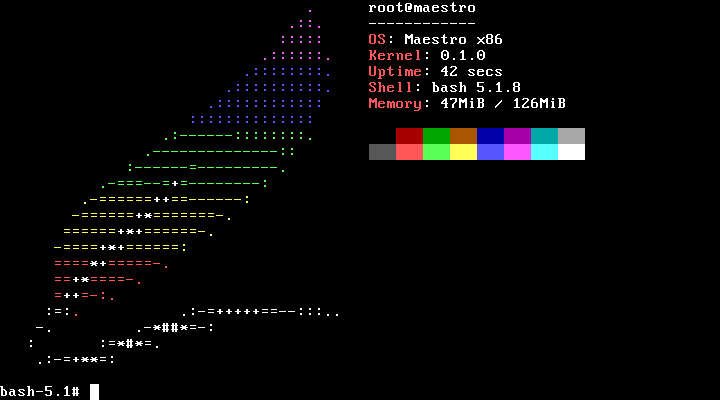
Maestro is a Unix-like kernel and operating system meticulously developed from scratch using the Rust programming language. Initially conceived as a school project in December 2018, it began in C but transitioned to Rust to leverage the language's advanced memory safety features, which are crucial for kernel development. This shift has allowed Maestro to implement numerous safeguards, making it a more innovative and stable project.
Maestro is designed to be lightweight and sufficiently compatible with Linux, aiming for everyday usability. Currently, it supports the x86 (32-bit) architecture and has implemented approximately 31% of Linux system calls. The OS comprises several components beyond the kernel, including Solfège (a boot system and daemon manager), maestro-utils (system utility commands), and blimp (a package manager). It successfully runs third-party software such as musl, bash, and various GNU coreutils commands.
Despite its early developmental stage and instability, Maestro can be tested using QEMU, VMWare, or VirtualBox. Users can either download a pre-built ISO or build it themselves. The project continues to evolve, focusing on codebase cleaning, performance optimization, and enhancing features like network support and shared library functionality. The ultimate goal is to create a stable environment where the kernel can be developed and tested using the OS itself.
Information shown may be outdated. Found an error? Report it here
Auto-fetched from GitHub today.